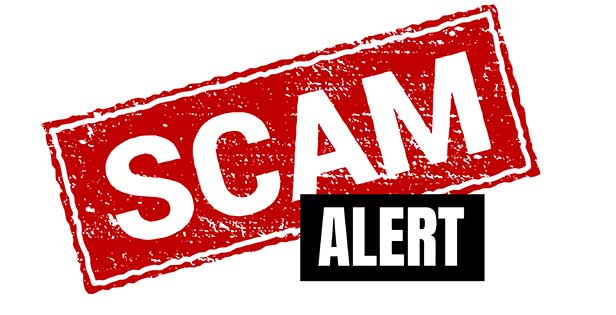April 20, 2020
Scams Targeting PPE Buyers Proliferate
While domestic promo suppliers and distributors aren’t accused of wrongdoing, industry companies have dealt with scam attempts and other issues, particularly when importing.
Rampant demand for personal protective equipment (PPE) amid the novel coronavirus pandemic has created conditions rife for price gouging and scamming.
Promotional products companies have encountered these issues and similar challenges related to sourcing PPE, including when they’re trying to import directly from China-based factories. Many distributors and suppliers have pivoted to selling PPE in an effort to generate revenue as promo sales have plummeted because of coronavirus-driven shutdown measures.

A Top 40 distributor told Counselor of so-called “bait-and-switch” issues with orders. In one instance, the distributor spent $2 million on what it believed would be PPE masks that would be authorized for use in a medical setting. When the masks arrived from the China-based supplier, they were not of the grade or quality promised.
 Tonia Allen Gould (pictured), CEO of California-based distributor Tagsource (asi/341358), recently uncovered that would-be PPE scammers were targeting her. Fortunately, she caught the ruse before losing any money or handing over sensitive business/financial information.
Tonia Allen Gould (pictured), CEO of California-based distributor Tagsource (asi/341358), recently uncovered that would-be PPE scammers were targeting her. Fortunately, she caught the ruse before losing any money or handing over sensitive business/financial information.
As Gould tells it, a person purporting to be an importer she’d worked with previously contacted her wanting to know if she’d be interested in buying 3 million N95 face masks that had been produced in China. Sensing something was off, Gould began digging deeper. She soon uncovered that a scam attempt was likely in play.
Gould believes promo is a particularly attractive target for scammers because of the industry’s soup-to-nuts supply chain that is closely linked from end-buyer to factory. Scammers could be after everything from money to a distributor’s legitimate documentation, which could be used to perpetrate future scams, Gould says.
“Fake brokers could also be creating fake demand and targeting the promotional products industry specifically,” opined Gould in a blog she wrote on the topic. “Creating fake demand puts us all in a buying and selling frenzy, hoping we forget standard protocol.”
Meanwhile, other promo firms report that they’ve placed orders for PPE with Chinese factories, only to have government officials confiscate the equipment. One Top 40 distributor, for instance, explained that authorities in China requisitioned one of its orders for masks because the officials wanted to keep the products for use domestically.
While not a scam, distributors and suppliers also say that costs to airfreight PPE has increased many times over, due to limited space availability. Rapid escalations in pricing have led to instances in which the price to ship, once it comes time to do so, is much higher than what the distributor quoted the end-client. That’s led to promo firms having to eat the additional cost. Some industry firms, including Top 40 supplier BIC Graphic North America (asi/40480), believe the freight price issues could soon begin to settle as carriers adapt to the increased demand.
New regulations in China are delaying the export of medical supplies, #COVID19 test kits and certain PPE items. How's that impacting #promoproducts supply chains focused on importing PPE? Some insights here: https://t.co/BJYPKpnS3W @asicentral @ASI_MBell @Tim_Andrews_ASI
— Chris Ruvo (@ChrisR_ASI) April 16, 2020
Of course, it’s not just the promotional products industry that’s dealing with issues related to PPE. As CNN reported recently, the price for some PPE products has skyrocketed more than 1,000%.
CNN pointed to a report from the Society for Healthcare Organization Procurement Professionals, a nonprofit organization, that found that during the COVID-19 pandemic the cost of N95 masks has increased from $0.38 to $5.75 each (a 1,413% increase); the cost of vinyl exam gloves went from $0.02 to $0.06 (a 200% increase); and the cost of isolation gowns has soared from $0.25 to $5.00 (a 1,900% increase). Reusable face shields that previously sold for $0.50 are now selling for $4 – a spike of 700%.
Bidding wars for the limited supply of PPE have fueled the soaring prices. “The cost keeps rising and rising and rising, and there's no end in sight,” Michael Einhorn, CEO and President of Dealmed, a PPE distributor based in New York, told CNN. “Anyone who wants to come in, places a bid. The loyalty and relationships that existed for so many years, don't exist. What matters is the almighty dollar to these people.”
See how one promo distributor is scoring success with PPE sales.
Meanwhile, the Federal Bureau of Investigation has warned that hackers are using business email compromise (BEC) scams on government and health care industry buyers desperate to purchase much-needed PPE. Potentially, any company or organization interested in buying PPE could be a victim of the BEC schemes.
Barracuda Networks, an IT security company, asserts that BEC scams are three times more successful than traditional email phishing scams. BEC schemes often involve the spoofing of a legitimate known email address or use of a nearly identical email address to communicate with a victim to redirect legitimate payments to a bank account controlled by fraudsters, the FBI says. A variation on BEC schemes can involve similar social engineering techniques via phone call.
Protect Against BEC Scams
The FBI recommends that buyers consider the following recommendations to protect their companies from BEC scams:
• If the seller claims to represent an entity with an existing relationship to the buyer, verify claims through a known contact. Do not contact the vendor through information provided in an email or phone communication.
• If possible, have a trusted independent party verify the items for sale are physically present and of the promised make, model and quality – and take delivery immediately upon payment.
• If immediate delivery is impossible, route payments to a domestic escrow account to be released to the seller upon receipt of the promised items.
• Verify with the manufacturer or verified distributor that the seller is a legitimate distributor or vendor for the items being offered.
• Be skeptical of last-minute changes in wiring instructions or recipient account information. Do not re-route payments without independently verifying the direction came from an authorized party.
• Verify the email address used to send emails, especially when using a mobile or handheld device, by ensuring the sender’s email address appears to match who it is coming from.
As detailed by the FBI, BEC hackers have tricked state government agencies into wiring funds to them in what the buyers thought was a legitimate purchase of medical equipment. The perpetrators have been based in the U.S. and abroad.
“In advance fee schemes related to procurement, a victim pre-pays (partially or in full) a purported seller or a broker for a good or service and then receives little or nothing in return,” the FBI says. “By the time the purchasing agencies became suspicious of the transactions, much of the funds had been transferred outside the reach of U.S. law enforcement and were unrecoverable.”
Other scams, product quality issues and incidents of price-gouging tied to PPE and medical supply include:
*The U.K. government paid $20 million for coronavirus test kits from China that did not work.
*An Irishman was arrested for his alleged role in a multimillion-dollar scam that is said to involve conning German officials to pay upfront for nonexistent personal protective equipment.
*3M has filed multiple lawsuits against different entities that have claimed to be associated with the corporation while attempting to sell PPE at what was virtually extortionate rates. In a recent suit, 3M alleged that a Florida company tried to sell tens of millions of the company’s N95 respirators to the federal government at inflated prices. The lawsuit filed in the U.S. District Court for the Northern District of Florida alleges that Orlando-based Geftico LLC twice attempted to fraudulently sell the “likely nonexistent” respirators at “grossly inflated prices” to the strategic national stockpile while falsely affiliating itself with 3M.
In such a wild marketplace, it’s essential that distributors and suppliers looking to sell PPE thoroughly vet their sources and only work with providers they’ve verified are legitimate. Be extremely suspicious if purported vendors are asking for sensitive business/financial information or trying to “hard sell” by saying that low pricing they’re offering will only last for a very short time before ballooning. Read more about how to protect against phishing scams and cyber threats here.
“Importers need to ensure that the products they are bringing in meet the regulations and protocols set in place to safeguard those who are in need of the products,” says Shamini Peter, chief operating officer/head of supply chain at New York City-based distributor Axis Promotions powered by HALO (asi/128263). “My advice is do not deviate from your supply chain process. Review all pillars of the supply chain when importing whether it be PPE or other products.”
